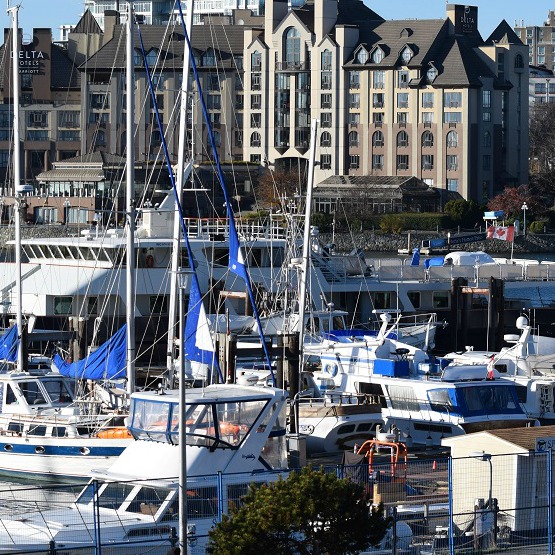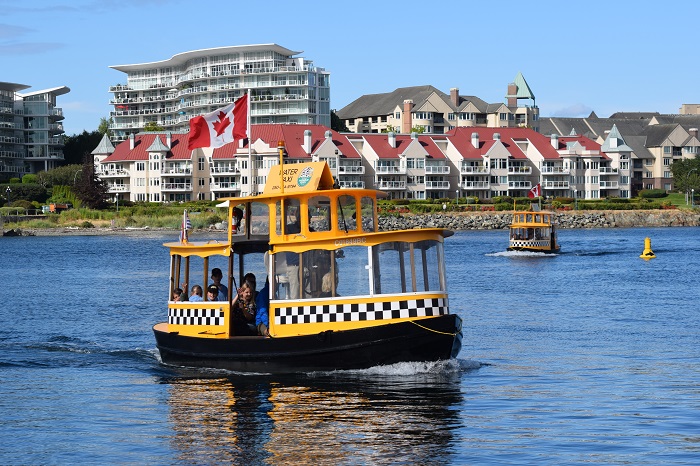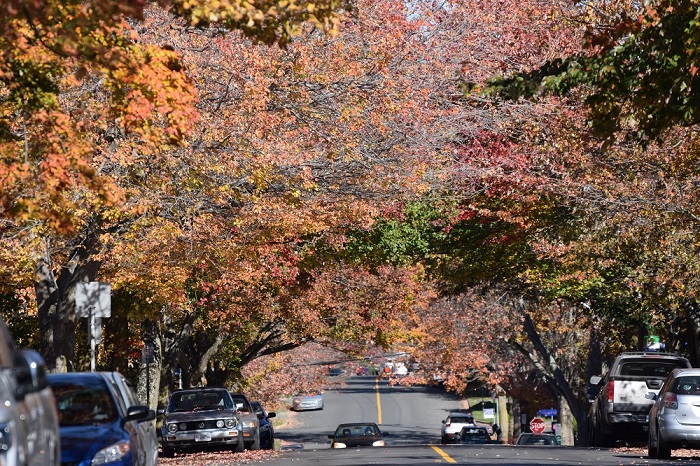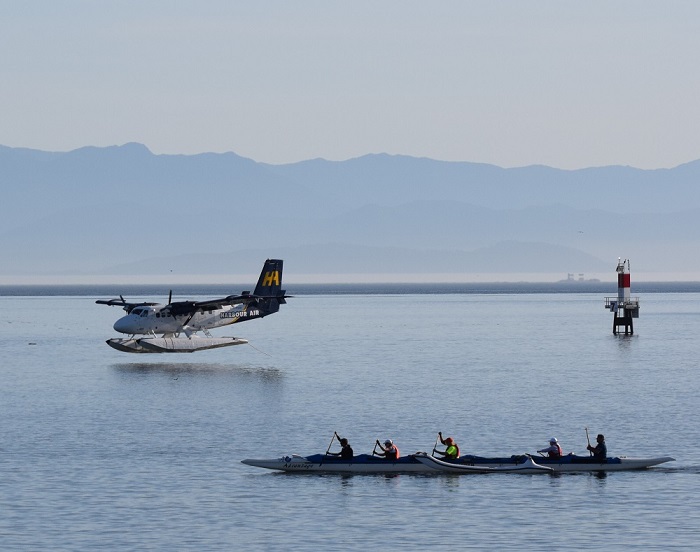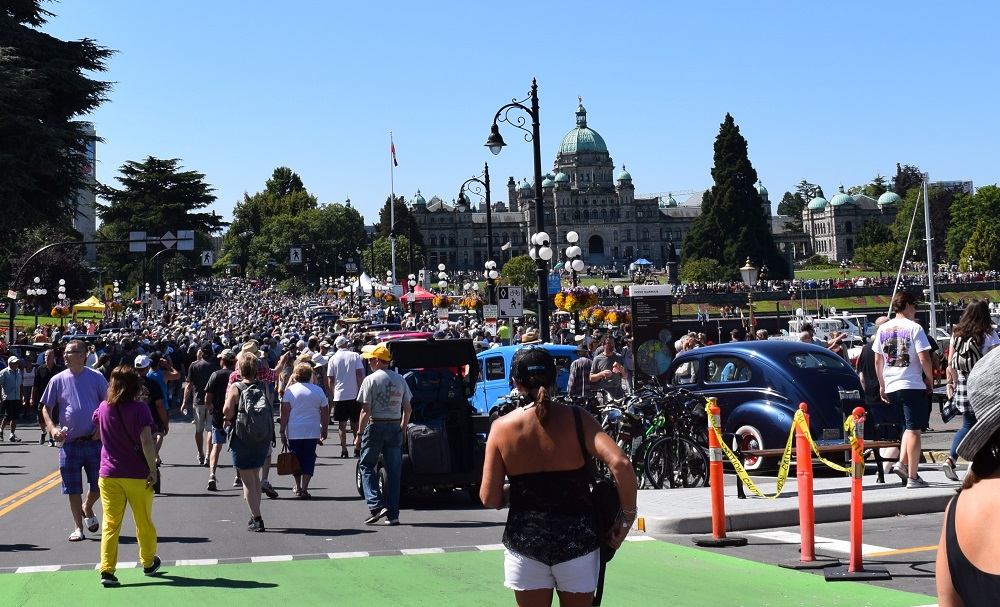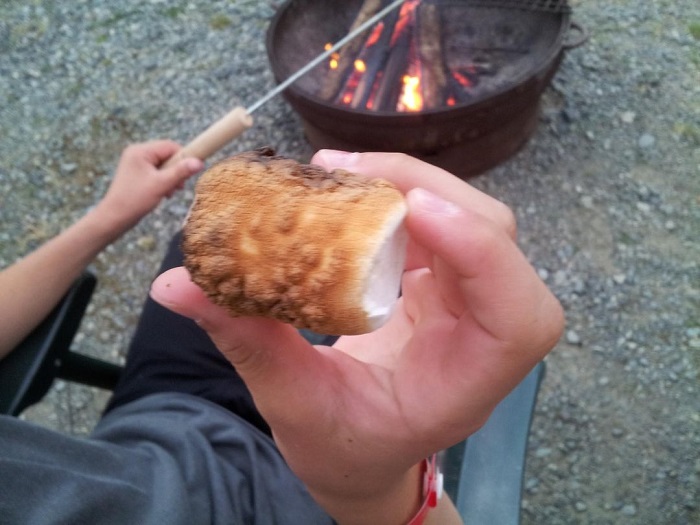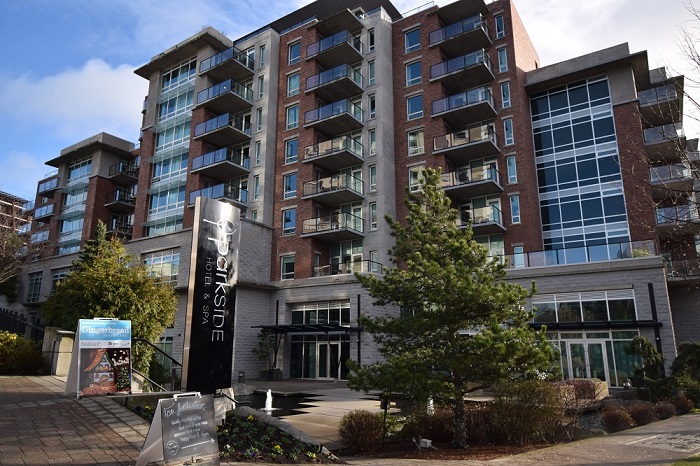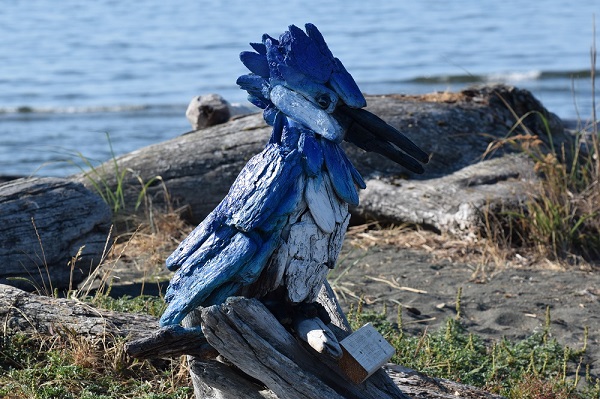- Victoria
- Moving Here
The Ultimate Guide to Moving to Victoria BC
Victoria is a city renowned for its natural beauty, rich cultural heritage and high quality of life. Moving to Victoria BC offers an opportunity to embrace a lifestyle characterized by tranquility, outdoor adventure and a strong sense of community. In this comprehensive guide, we will delve into everything you need to know about making Victoria your new home.
About Victoria BC
Victoria is nestled on the Southern tip of Vancouver Island in British Columbia, on the west coast of Canada. The Island is 460 km long and approximately 120 km at its widest point and features a rugged coastline with a heavily forested, mountainous interior sprinkled with lakes, rivers and streams that are begging to be explored. Learn more about our magical island in our Guide to Island Essentials.
Vancouver Island is not connected to mainland Canada by a bridge so you must get here by sea or air. Learn more about getting to Victoria here.
Victoria proper is a city with a population of about 80,000 residents however Greater Victoria is comprised of 13 municipalities with a population of nearly 400,000. The 13 municipalities are:
- City of Colwood
- City of Langford
- City of Victoria
- District of Central Saanich
- District of Highlands
- District of Metchosin
- District of North Saanich
- District of Oak Bay
- District of Saanich
- District of Sooke
- Town of Sidney
- Town of View Royal
- Township of Esquimalt
Depending on who you are speaking with, locals may say they live in "Victoria" or they may say they live in any one of these municipalities. Neither is wrong. (I tell locals I live in View Royal but if I'm speaking with someone unfamiliar with the area, I would just say I live in Victoria). Nobody will say they live in "Greater Victoria".
What's important to know about these municipalities is that they each have their own city/town hall with their own bylaws, schools, taxation and community services.
Why Choose Moving to Victoria BC?
Victoria's allure lies in its perfect combination of urban amenities and natural wonders. Moving to Victoria BC provides residents with access to lush parks and gardens, picturesque ocean views and a myriad of recreational opportunities. The vibrant downtown area is filled with historic architecture, boutique shops and diverse culinary experiences.
Many naysayers will be quick to tell you that Victoria's downtown is not what it once was. And they are not wrong. The pandemic sent thousands of office workers to their home offices and many never returned. This means fewer people frequenting the shops and restaurants on a daily basis which has had a ripple effect, making it harder for some businesses to remain operational. With fewer office workers in the downtown core, our homeless population is more visible. With all that said though, downtown Victoria is a safe, walkable bustling hive of activity.
Moreover, Victoria is known for its strong sense of community and progressive values, making it an ideal destination for individuals and families alike.

Cost of Living
Before moving to Victoria BC, it's crucial to consider the cost of living - housing, food, taxes and healthcare.
Housing
While housing prices in the Greater Victoria area have risen dramatically in recent years, they remain somewhat affordable compared to Vancouver and Toronto. This is of little consolation if you are moving here from a community with lower housing prices however the city's moderate climate helps keep utility costs manageable throughout the year.
One of the main challenges is finding appropriate housing - as an owner or a renter - that is affordable for your budget and within a reasonable proximity of services, amenities and employment. The further you have to travel, the more likely you'll encounter some sort of traffic congestion or road closure. Several communities have only one way in/out and when those are blocked, waiting in traffic for hours becomes inevitable. Greater Victoria has a decent transit system but it does not include rail/subway/skytrain options. Your daily commute is an important consideration when you are looking for housing.
Food
When I first moved here I found the food prices higher than I was used to however after a recent trip back to Southern Ontario, prices seem to be relatively comparable if you know where to shop. We don't have stores like No Frills or Food Basics but we do have 3 Walmart locations with full grocery stores, Costco and a Wholesale Club (no membership required) as well as regular grocery stores. The price of food has gone up everywhere but shopping for seasonal foods and buying what's on sale will stretch your grocery dollars.
Taxes
Provincial sales tax in British Columbia is 7% in addition to the 5% GST and is payable on almost everything except most foods, children's clothing, books and prescriptions. Find out more about taxes and exemptions here.
Healthcare
In B.C., public health insurance is called the Medical Services Plan (MSP). It covers the cost of medically-necessary insured doctor services. Learn more about eligibility and enrolment here.
Neighbourhoods
Victoria is home to a diverse range of neighbourhoods, each with its own unique character and charm. Downtown Victoria is bustling with activity, featuring trendy cafes and waterfront promenades. For those seeking a more laid-back atmosphere, neighbourhoods like Oak Bay, James Bay and Cook Street Village offer tree-lined streets and easy access to parks and beaches. Fernwood is decidedly funky with an artsy vibe. Meanwhile, Saanich, Langford and Colwood provide suburban living with excellent schools and amenities.
Climate
Victoria's mild coastal climate is one of its most appealing features. Winters are mild and wet, while summers are warm and dry, making outdoor activities possible year-round. The city experiences fewer extreme weather events than other parts of Canada, allowing residents to enjoy outdoor pursuits such as hiking, cycling, and kayaking throughout the seasons.
The temperate climate also supports a thriving agricultural sector, with local farmers markets offering fresh produce year-round.
Read more about the weather in Victoria here.
Employment
Victoria boasts a robust and flourishing economy, characterized by its diversity across multiple sectors, including technology, tourism, government, healthcare, and the vibrant film industry. The city's burgeoning tech scene has a strong focus on emerging technologies such as software development, clean technology and digital media, earning it the moniker "Tectoria".
As the capital of the Province of British Columbia, the region hosts numerous government entities and offices including the head offices of BC Transit and BC Ferries as well as employment in regional and municipal government offices.
Victoria is home to Canada's Pacific Naval Fleet who make their home at CFB Esquimalt. The Base provides employment for approximately 5,000 military personnel and 3,000 civilians. Additionally there are ship yards in the area for highly skilled, good-paying trades positions.
Tourism is also big business in Victoria with nearly 300 cruise ships expected in 2024, each carrying an average of 3,500 visitors who stay 3-8 hours. Additionally, according to Tourism Victoria, the region attracts over 4 million overnight visitors annually. This bustling tourism sector offers employment opportunities in hospitality, retail and entertainment, adding to the city's dynamic appeal as both a workplace and a residential destination.
Education and Healthcare
For families considering a move to Victoria, access to quality education and healthcare is essential. The city is home to reputable public and private schools, as well as post-secondary institutions like the University of Victoria and Camosun College.
Victoria also boasts a comprehensive healthcare system with hospitals, clinics and specialist services available to residents.
However, like many Canadian cities, finding a family doctor can be very challenging (we lived here for 9 years before securing a family doctor) and since the pandemic, walk-in clinics are often full at 8 in the morning which then has a ripple effect of people visiting the emergency room for non-emergency conditions and ailments.
Specialist appointments in general can also take many months to get in and there is no dedicated children's hospital on the island which could mean costly trips to Vancouver to access specialty pediatric care.
So while residents have access to highly specialized services - most available at no cost through public health insurance (learn about eligibility and enrolment here), we must exercise patience to access it.
Transportation
On a good day, getting around Victoria is fairly easy thanks to our well-connected transportation network. The city has an extensive bus system operated by BC Transit, as well as cycling lanes and pedestrian-friendly pathways. Read more about getting around Victoria.
As I eluded to earlier though, with only one road in and out of most communities surrounding City of Victoria, one little snag and the transportation network can quickly come to a grinding halt. Just this morning while writing this page the Trans-Canada Highway (TCH) is closed in both directions just north of Victoria, essentially shutting the city off from the rest of the island and stranding drivers in both directions. This also happens a few times a year on the roads to Sooke and up the peninsula towards Sidney. If you're moving to Victoria BC, you must be prepared for this kind of transportation situation.
When I first moved here, an aquaintance told me "you don't realize you're on an island until you try to leave". That's because there is no bridge to the mainland! In order to leave you'll need to go by air or sea. The Victoria International Airport provides domestic and international flights, or you can travel by helicopter (Helijet terminal is located beside the Port of Victoria) or by seaplane from the Victoria Inner Harbour Airport.
BC Ferries connect the city to mainland British Columbia via Swartz Bay or you can travel to the United States on the passenger ferry Clipper or the vehicle ferry Coho who both sail from the Inner Harbour.
Cultural and Recreational Opportunities
Victoria offers a rich tapestry of cultural experiences, from art galleries and museums to live music venues and theater productions. The city hosts numerous festivals and events throughout the year, celebrating everything from food and wine to music and maritime heritage. Outdoor enthusiasts will also find plenty to explore in Victoria, with opportunities for hiking, biking, whale watching and more.
Community and Lifestyle
What truly sets Victoria apart is its strong sense of community and relaxed lifestyle. Residents enjoy an exceptional quality of life with abundant amenities such as parks, beaches and recreational facilities. The city's diverse population is welcoming and inclusive, making it easy to connect with other like-minded individuals and build meaningful relationships.
Moving to Victoria BC:
Moving to Victoria BC offers the opportunity for a fulfilling and enriching life in one of Canada's most picturesque and vibrant cities. From its stunning natural surroundings to its thriving cultural scene, Victoria has something to offer everyone. Whether you're drawn to the city for its career opportunities, outdoor adventures or sense of community, making the move to Victoria is sure to be a decision you won't regret. With careful planning and preparation, you can embark on this new chapter with confidence and excitement.
Welcome to Victoria!
Recent Articles
-
Vancouver Island Wildlife Viewing Times and Locations
Sep 16, 24 06:42 PM
Discover the best times and places to see wildlife in their natural habitat with our Vancouver Island Wildlife Viewing guide. -
Private Campgrounds on Vancouver Island
Aug 13, 24 05:23 PM
Your one-stop listing of all private campgrounds on Vancouver Island. -
Where to Stay in Victoria, BC: A Comprehensive Guide
Jul 10, 24 12:42 PM
Choosing the right place to stay can significantly enhance your experience. This guide provides tips and ideas to help you decide where to stay in Victoria.
